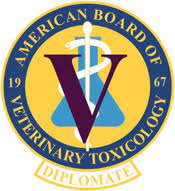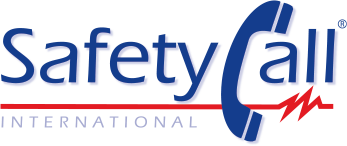FDA released an updated guidance for industry to include instructions on mandatory adverse event reporting for cosmetics. Mandatory reporting was included in the sweeping legislative update for cosmetics last year, passed as part of the appropriations package that was signed into law on December 29th, 2022. These are the most significant changes for the industry since cosmetics initially …
Dr. Kingston Presenting at Independent Beauty Association’s FDA Cosmetics Regulations Workshop
SafetyCall’s Dr. Rick Kingston will be speaking at this year’s FDA Cosmetics Regulations Workshop held by the Independent Beauty Association. The virtual workshop will feature expert speakers discussing the latest issues and developments within the cosmetic and personal care products industry. Updates will include FDA MoCRA requirements, FDA cosmetic listing, FDA cosmetic facility registration, And other cosmetic labelling requirements and …
SafetyCall Named a Top Workplace for the 13th Year
 We are honored to announce that SafetyCall International/Pet Poison Helpline has been recognized as a Top Minnesota Workplace for the 13th year! As we reflect on the past year, we are honored to have amazing employees who exemplify our mission and values of respect, integrity, honesty, trust, compassion, accountability, teamwork, professionalism, and loyalty. The Top Workplace award represents the hard …
We are honored to announce that SafetyCall International/Pet Poison Helpline has been recognized as a Top Minnesota Workplace for the 13th year! As we reflect on the past year, we are honored to have amazing employees who exemplify our mission and values of respect, integrity, honesty, trust, compassion, accountability, teamwork, professionalism, and loyalty. The Top Workplace award represents the hard …
Upcoming CHPA Webinar: Your dog ate what?! Managing pet exposures to healthcare products.
Just in time for Pet Poison Prevention Week, Dr. Ahna Brutlag will be featured on a CHPA (Consumer Healthcare Products Association) webinar on March 15th at 2pm EDT! Dr. Brutlag’s presentation will break down the best practice options for managing pet exposures to consumer healthcare products.
More About the Webinar:
Pets are family. Just ask the 78 million pet …
Proposed Change of Agency for Oversight of Animal Health Products
This past Wednesday, March 1st, EPA and FDA’s Center for Veterinary Medicine hosted a joint information session for industry stakeholders regarding a proposed change of agency for oversight of animal health products, such as flea/tick spot-ons and collars. An estimated 600 products would be impacted by this proposal, expected to take approximately 5 years to implement. This is …
Breaking news for cosmetic manufacturers! New mandatory adverse event reporting requirements!
During the 11th hour of 2022, President Biden signed into law the Modernization of Cosmetics Regulation Act of 2022 (MOCRA) as part of the Consolidated Appropriations Act. SafetyCall has been closely monitoring the proposed cosmetic legislation for several years and, as anticipated, the MOCRA of 2022 establishes new regulations related to monitoring adverse events and mandatory reporting of all …
Congratulations to Our Newest ABVT Diplomates
 SafetyCall International is thrilled to announce that Drs. Dominic Tauer and Holly Hommerding are SafetyCall’s newest American Board of Veterinary Toxicology (ABVT) Diplomates! We are honored to be staffed with industry leading experts in veterinary toxicology.
SafetyCall International is thrilled to announce that Drs. Dominic Tauer and Holly Hommerding are SafetyCall’s newest American Board of Veterinary Toxicology (ABVT) Diplomates! We are honored to be staffed with industry leading experts in veterinary toxicology.
ABVT is an internationally recognized certifying body for veterinarians demonstrating knowledge and expertise in many aspects of toxicology. Established in 1967, the ABVT is …
SafetyCall is Named a Top Workplace for the 12th Year
We ar e honored to announce that SafetyCall International/Pet Poison Helpline has been recognized as a Top Minnesota Workplace for the 12th year! We experienced a year full of growth and change, while remaining focused on our mission and values of respect, integrity, honesty, trust, compassion, accountability, teamwork, professionalism, and loyalty. The Top Workplace award represents the hard work and …
e honored to announce that SafetyCall International/Pet Poison Helpline has been recognized as a Top Minnesota Workplace for the 12th year! We experienced a year full of growth and change, while remaining focused on our mission and values of respect, integrity, honesty, trust, compassion, accountability, teamwork, professionalism, and loyalty. The Top Workplace award represents the hard work and …
Team Member Spotlight- Tammy Johnson, CVT
More about Tammy:
Tammy Johnson is a Certified Veterinary Technician, Training Manager, Senior Veterinary Information Specialist, and Client Liaison at SafetyCall. She manages the development, implementation, and execution of the new hire and continuing education programs for SafetyCall. She joined SafetyCall International in 2007 and began her focus in the Training Management role in 2014. She earned her Associates of …
SafetyCall is Named a Top Workplace for the 11th Year
 We are honored to announce that SafetyCall International/Pet Poison Helpline has been recognized as a Top Minnesota Workplace for the 11th year! The award is especially meaningful this year because of the circumstances that were presented to us as a company in 2020. We experienced a year full of growth and significant change, yet were able to remain stable …
We are honored to announce that SafetyCall International/Pet Poison Helpline has been recognized as a Top Minnesota Workplace for the 11th year! The award is especially meaningful this year because of the circumstances that were presented to us as a company in 2020. We experienced a year full of growth and significant change, yet were able to remain stable …



